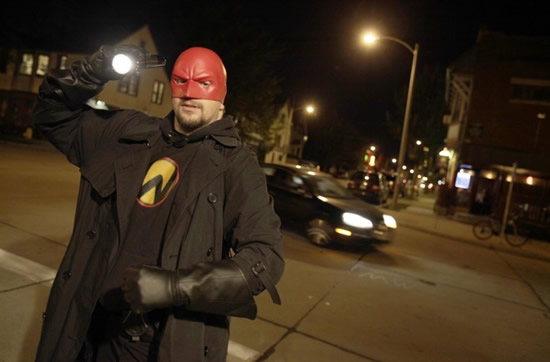A Mexican Take on the Primary Race
By Ioan Grillo/Mexico City
“Leave Obama alone!” grunts the suited man, as Hillary Clinton is shown mocking her rival on the TV in this smoky bar. “Let her talk, she’s telling the truth,” his companion retorts through a bottle of beer. “Obama doesn’t know what he is doing. Hillary’s got the experience for the top job.”
Such a conversation might be commonplace in bars from Houston to Cleveland as the U.S. warms up for decisive Democratic primaries in Ohio and Texas. But this one is being conducted in Spanish, hundreds of miles south of the Rio Grande. U.S. elections grab attention around the world in ways that no other foreign election does, because the outcome of the race to lead the last economic and military superpower could have consequences everywhere.
The connection is even more pronounced in Mexico, where the government estimates that fully half of the population has family in the United States. And many of the issues being debated by the candidates — immigration, the North American Free Trade Agreement and a war in Iraq that Mexico was asked to support — have long been concerns of the Mexican public.
In 1996, a Mexican activist-wrestler who calls himself Superbarrio Gomez even declared himself a “candidate” for U.S. president, and held mock campaign rallies on both sides of the border. Wearing a superhero cape and wrestler outfit, Superbarrio promised to abolish the Border Patrol and Drug Enforcement Agency, “to deal a blow to international drug trafficking.”
But this year, Mexicans are more interested in what the American candidates are saying. The war of words between Obama and Clinton has been plastered across the front pages of Mexican newspapers and aired in prime time TV news shows. Many Mexicans are impressed that a woman or a black man could lead their powerful northern neighbor, a possibility that makes them reflect on the social hierarchies in their own country. Mexico has never had a woman president and no Mexican of pure Indian roots has headed the nation in more than a century. “When a black man arrives to be President of the United States, and even more when the child of black and white — a mulatto — it will be like the first Christian emperor of the pagan Roman Empire,” wrote columnist Paz Flores in the Mexican newspaper El Norte. “It will be the beginning of the end and the start of something new.”
Living hundreds of miles away from black-Hispanic tensions that plague some U.S. cities, many here identify with Obama as a person of color challenging a traditionally white power structure. Others like the candidate simply because he is a charismatic figure whose speeches are able to move even those for whom English is a second language.
“Obama speaks more directly and to the point than the others,” says Veronica Aguilera, 30, an architect from the Mexican capital. “You feel he is saying what he really believes.” Still, Hillary Clinton maintains a solid fan base in Mexico. Many here are still grateful for the Clinton Administration’s 1994 financial bailout of Mexico during the peso crisis. Senator Clinton’s criticism of NAFTA also finds sympathy here, where millions of corn and bean farmers say U.S. imports are destroying their livelihoods.
For some Mexicans, the issues is not Hillary or Obama, but simply getting the Democrats back into the White House. Political analyst Jose Antonio Crespo argues that either one, as President, would improve relations with Mexico, although he sees Clinton’s experience as giving her an edge. “A victory for Obama would represent more of a radical change,” he says. “But Hillary Clinton would be a more realistic leader.”
Others see the ascent of a former First Lady as worrying sign of family political power, comparing it to a recent bid for the presidency by a Mexican first lady. Marta Sahagun, wife of former President Vicente Fox, had positioned herself as a candidate to follow her husband, but eventually declared she would not run for office as her husband’s administration faced allegations of corruption over the national lottery.
Despite Mexicans’ traditional sympathy for the Democrats, Senator John McCain also has plenty of supporters south of the border, because of his track record on immigration. “There has been a lot of immigrant bashing in the campaign but McCain has not been part of it,” says Rep. Jose Jacques Medina, a leftist lawmaker who was an immigrant activist in California for more than 30 years. “It’s surprising, but the candidate with the best record on immigration is a Republican.”
http://www.time.com/time/world/article/0,8599,1718520,00.html?xid=site-cnn-partner

